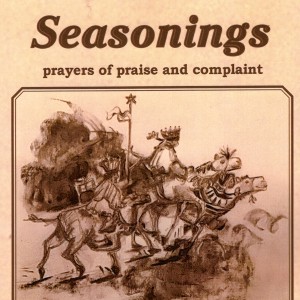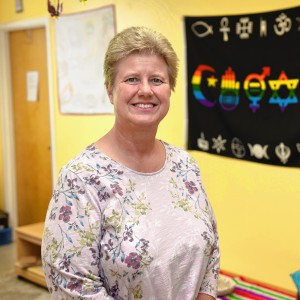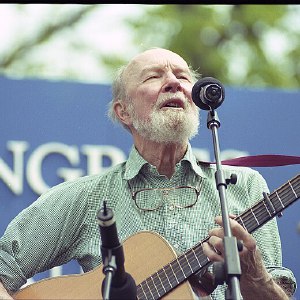Local food and the balance of nature: Charlemont brothers tout hunting lifestyle
| Published: 12-04-2023 2:50 PM |
Walking through the woods in late autumn with the Coates brothers is an eye-opening experience. “Look here,” said Brandin Coates, 42, crouching to brush leaves aside. “A doe was here within the last day or so.” When asked how he detected footprints that were obscured by leaves, he shrugged and said, “Practice.” Further on in a forested area of Heath, his brother Aaron, 39, pointed to oval depressions in the underbrush: “Deer bedded right here. And over there, too.”
The Coates brothers spent a lot of time outside as kids, building tree forts, fishing, and hanging out in the woods with their cousins. They and their siblings, Carrie and Eric, benefited from living close to the natural world, and from the care provided by their hardworking parents, Bob and Cindy Coates.
Brandin and Aaron have maintained deep connections with nature and get outdoors every chance they get. They’ve adopted hunting as a hobby, a passion, and indeed a lifestyle. “Hunting is my only hobby,” said Brandin. “Actually, it’s an obsession.” Although he actively hunts only during sanctioned times, he thinks about it year-round.
Now the father of two teens, Brandin was 16 when first introduced to deer hunting. “I was with some uncles and older cousins when I saw my first big deer bagged.” He began reading hunting magazines cover-to-cover and studiously viewing DVDs on the subject. A few years later, he shot his first deer. “I’ve bagged about 10, total, at this point. I hunted deer, only, for about 10 years, and then got into turkey hunting, too,” said the union carpenter.
When Brandin gets into something, he goes in 100%. After learning that some wild turkey hunters use what’s known as turkey calls — gizmos that mimic the sounds made by turkey hens — Coates figured he could make his own. He soon produced turkey calls that were so excellent, other hunters began requesting his handiwork. Meanwhile, he introduced his oldest child, Laynie, to turkey hunting. “At 17, she’s one of the best turkey hunters around,” said the proud dad, who added that Laynie studies welding at the Franklin County Technical School.
Like his older brother, Aaron was 16 when he first hunted, but says he “got out of it in my early 20s, and didn’t hunt again for about 10 years.” An electro mechanic with Applied Dynamics, Aaron hunts with both firearms and archery. A couple of years ago, he introduced his daughter, Ryder, now 9, to archery. She added it to her long list of hobbies.
A Massachusetts state government website outlines about a dozen animals that are legal to hunt in their respective seasons, including pheasant, waterfowl, coyote, bear, fox, bobcat and a variety of small game. But white-tailed deer and wild turkey — the types avidly sought by the Coates brothers — top the list.
“While deer hunting, you get colder than with turkey hunting, but you get more meat,” said Brandin. “It’s also more challenging. You have to play the wind and many other things. It’s like putting a puzzle together, or solving a mystery.”
Article continues after...
Yesterday's Most Read Articles
Aaron added, “You have to go out and find their spots, like where they’ve been sleeping, and try to figure out what they do on a daily basis.” Brandin noted that a successful deer hunter must take into consideration how the animals find food, water, and cover. “While hunting, you’re tracking them. We’re looking for high concentrations of trails, bedding areas, signs of their habits.” Hunters also take into consideration the mating season, since it’s easier to find deer during the rut, the season when they breed.
The number one trick, according to Aaron, is to “remember that deer can smell you. That’s why I like to bow hunt from a tree: you have a better chance if you get your scent above the deer’s nose. And no matter what, you always want to hunt downwind.”
Brandin contrasts big woods hunting with urban hunting. Urban hunting may sound like an oxymoron, but it’s permissible within regulations. It’s also easier than big woods hunting. Brandin said, “Let’s just say those of us who do big woods hunting actually work for our deer.” He explained that different towns are classified into different hunting zones. “Cities have way too many deer, and those animals have nowhere to go. It’s like shooting fish in a barrel.”
The brothers have established certain routines. “One challenge is learning how to stay warm,” said Aaron, “especially while deer hunting. We use hand warmers and bundle up, because deer hunting is a waiting game. While turkey hunting, we can talk more, but have to remember that turkeys have very good eyes.” His brother nodded, adding, “If you blink, a turkey can see it. But at least we’re warmer during turkey season.
While deer hunting, the brothers cover an area by spreading out. “We get to know their regular spots,” said Aaron, “and sometimes deer act just like people and get lazy. Sometimes you’ll see them strolling along a cart road.”
Hunters are obligated to take eight hours of safety training. “It’s not common to have accidents while bow hunting,” said Aaron, “because you have to get up close to the animal before shooting. But with guns, we have to know where the other person is at all times. You keep a close eye on your hunting partner.” During firearms season, hunters are required to wear a certain amount of orange apparel; camouflage is permitted only during bow season.
When renewing a license, a deer hunter receives two buck tags. “Doe tags are a draw, like a lottery,” said Aaron. “Most states will give you one doe tag and one buck tag, but not in Mass. I think that would be better, though.”
The moments following a kill are highly regulated. “The first thing you do is put on the licensed tags. You can’t even drag [the animal] to your truck without the tags,” said Brandin. “Once you check it in [at a sanctioned location], then you can conceal it. But until it’s checked in, you have to keep some part of the animal visible, even if it’s a hoof sticking out. Some people may not like seeing that, but it’s the rule.” A hunter must then wait for their confirmation number.
Once they get home, the brothers tend to butcher carcasses themselves, Brandin in a garage, and Aaron outside. “We eat what we kill,” said Brandin. “That’s why we don’t hunt bear; we don’t like how it tastes.” In general, Brandin prefers the taste of wild turkey; Aaron likes turkey and deer equally.
“Sometimes, if I bag a deer early in the day, I’ll take it to Adam Williams at Red Beard Butchering Company,” said Brandin. “That way, I can keep hunting in daylight. But if I were to get a second deer in a day, I’d butcher it myself.”
One great frustration for the brothers is the Sunday hunting ban in Massachusetts. As full-time workers in their respective jobs, they say the prohibition cuts their weekend hunting time in half. (See “Maine, Mass. last states to keep bans on Sunday hunting,” Recorder, Nov. 20.)
When asked what they would say to those who decry hunting, Brandin replied: “Many of those same people are into local food. Well, guess what? The meat you buy in the grocery store is from animals that were killed. When we bring in local meat, we butcher it ourselves, cook it ourselves and feed our families.” He also noted that hunters’ fees go a long way toward preserving regional lands.
Aaron said that hunting is growing in popularity due to social media. “And I’m glad that [online sources] nudge people to go for more mature deer,” he said. “Critics need to understand that, if it wasn’t for hunters, there would be serious overpopulation [of certain animals].”
Witnessing the Coates brothers haul equipment into the woods, set up tree stands, and survey the landscape with keen powers of observation, it’s apparent that they devote a huge amount of time to learning their craft, working with nature, and approaching the process skillfully. They respect nature’s balance, enjoy their time outdoors, and pass valuable ethics along to their children.
Eveline MacDougall is the author of “Fiery Hope” and a musician, artist, and mom. Readers may contact her at eveline@amandlachorus.org.



 Speaking of Nature: Indulging in eye candy: Finally, after such a long wait, it’s beginning to look like spring is here
Speaking of Nature: Indulging in eye candy: Finally, after such a long wait, it’s beginning to look like spring is here Celebrating ‘Seasonings’: New book by veteran preacher and poet, Allen ‘Mick’ Comstock
Celebrating ‘Seasonings’: New book by veteran preacher and poet, Allen ‘Mick’ Comstock Faith Matters: How to still the muddy waters of overthinking: Clarity, peace and God can be found in the quiet spaces
Faith Matters: How to still the muddy waters of overthinking: Clarity, peace and God can be found in the quiet spaces A time for every purpose under heaven: Free sing-a-long Pete Seeger Fest returns to Ashfield, April 6
A time for every purpose under heaven: Free sing-a-long Pete Seeger Fest returns to Ashfield, April 6
